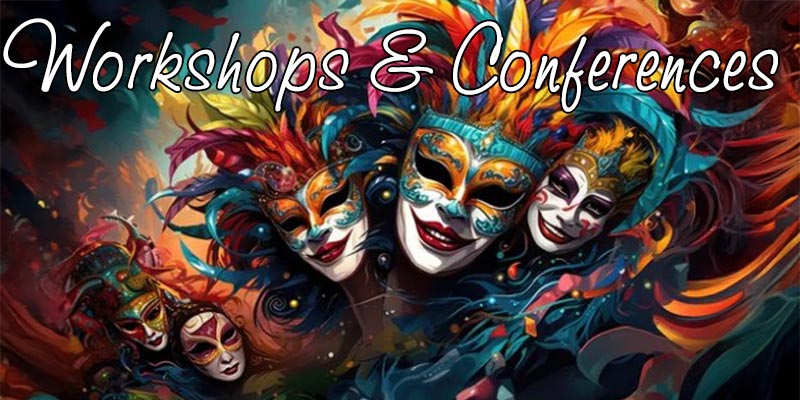The site for writers of all genre, and the readers who love them. Find what you want to know.
Various Types of Writing for Young Writers

Teacher to Teacher
By Mary Emma Allen
So often we or our students think of writing as composing poetry and fiction stories. Usually we don’t consider non-fiction pieces, interviews, reports, essays, letters, and other similar forms. When youngsters say, “I can’t think of a story,” suggest other types of writing which might dispel their “writer’s block.”
Journal Writing
Many teachers use journals to start children writing. Sometimes this is a routine morning activity to quiet the students as they come into class and to get them into the mood for learning. The younger students usually draw pictures to accompany their daily journaling. Sometimes the journaling is free write. Other times the teacher will assign them a topic. Some students have no problem thinking of something to write about whereas others draw a blank and need a prod from the teacher.
Writing About their Pet
When children draw a blank about writing, they usually can write about their pet(s) if they have any. They may write a description, how they acquired it, how they care for it and play with it. (If the pet died, you’re almost assured to get a very sad story about this.) This topic of pets also can be turned into fiction as you encourage youngsters to write about an adventure they could have with their pet. Or it may be an adventure their pet encounters. When using this lesson, I often read to them my story, “The Live Christmas Tree Ornament,” that was published in magazines and an Animal Tales anthology. This fiction story is based upon an incident from my childhood. I discuss with the students how they can write a story about an adventure with their pet.
Report of a Sports Event
This usually is an enjoyable activity for youngsters who participate or watch sports. They can write a report about a a game they played in or watched. Study with them newspaper stories on the sports page which report games or give interviews of players. Then encourage them to write their own stories.
From this they can delve into fiction, either by using the report as a springboard for their story or coming up with something completely new. I often use my story, “Tim’s Big Race” which appeared in Jack and Jill, as an idea stimulator. After reading the skiing story to them, I discuss how I came up with the idea for the story and the way I wrote it.
Report on a Family Trip
This topic may seem a variation of the old “What I Did On My Summer Vacation.” However, study travel articles in newspapers and magazines and see if your students can write a travel story of their own. Since I’ve done a great deal of travel writing, I keep a file of my stories to use with the students. If you don’t write travel articles, clip some you enjoy from newspapers and magazines to use as models for the youngsters. The young writers can accompany these stories with photos or sketches.
Book Report
Book reports often seem boring to many students. However, there are others, like my granddaughter, who enjoy writing them. Last summer, she was reading books voraciously so her parents suggested she write a report for each one.
My son-in-law found a format for a book report which, at first the third graded simply filled in. Then they suggested she elaborate and write a more descriptive report of the book. She enjoyed this and now doesn’t mind book reports at school.
Family History
Youngsters can find fascinating people among their ancestors to write about. They may not even have to go so far back. They can talk with their grandparents and gather stories from them. The young writers might be encouraged to compile a book of family stories, complete with accompanying photos and sketches.
When they research their ancestors, they may find interesting people. I tell them about my great great uncle Buffalo Bill Mathewson, who was a fur trader on the Santa Fe Trail. By exploring my family history, I found this fascinating person and others to research and write about.
Recipes
Write about recipes? Yes, writing about cooking and food history may interest some children. After all, I’ve been writing cooking columns for 30 years and still find much of interest. Have your young writers study cooking columns in newspapers and magazines. Look at cookbooks that contain background information about the recipes. Compiling a book of family recipes is another form of family history.
Letters
Letters constitute a type of writing which is becoming a lost art today. I treasure letters written by my great grandmother and other ancestors. My mother was an avid letter writer and I’ve saved many of her letters over the years. When I moved away from my hometown, she regaled me with family happenings.
I read some of the humorous events to youngsters to let them know they can write letters about funny happenings in their lives. Sometimes they write more freely if they feel they’re telling others something through a letter rather than an essay or report.
These also can be letters to the editor in which students write to express opinions. Help them study these letters in various newspapers.
Writing a Class or Neighborhood Newspaper
This can be a fun project and encompass many of the above activities as youngsters produce the various sections of a newspaper. Frequently your local newspaper will give students tours with reporters and editors explaining and showing the students their jobs.
Some newspapers will even have a student department where youngsters can furnish articles. When I worked on a weekly newspaper, we had students write a column of school events and opinions. (Actually the students came to us and asked if they could do this.)
Since I was a teacher as well as reporter, my editor gave me the assignment of working with the students and editing their work. Our statewide newspaper publishes students’ work each Monday. These are just a few of the different types of writing students can undertake, along with fiction writing and poetry. So when they have “writer’s block” have some of these activities in mind for them to try.
__________________
For more information about Mary Emma and her writing visit her web site: http://maryemmallen.blogspot.com
AGENTS & EDITORS
- Agents: Knowing When To Hold One and When To Fold
- Copyright Primer, Know Your Rights
- Getting Offers from Multiple Literary Agents
- Landing An Agent Elements Of A Winning Query
- Literary Agents List
- Preditors and Editors
- Publishing, Writing Terms, Acronyms
- Tips for a Successful Editor Appointment
- Want More? Here’s How to Get It
- What NOT to Do When Beginning Your Novel
- Windup for the (Story) Pitch
- Write the Perfect Book Proposal
CALLS FOR SUBMISSIONS
![]()
CALLS FOR SUBMISSIONS MAIN PAGE
- 2026 FEB Calls for Submissions
- 2026 JAN Calls for Submissions
- 2025 DEC Calls for Submissions
- 2025 NOV Calls for Submissions
- 2025 OCT Calls for Submissions
- 2025 SEP Calls for Submission
- 2025 AUG Calls for Submission
- 2025 JUL Calls for Submission
- 2025 JUN Calls for Submission
- 2025 MAY Calls for Submission
- 2025 APR Calls for Submission
- 2025 MAR Calls for Submission
- 2025 FEB Calls for Submission
ENCOURAGEMENT & IDEAS
![]()
ENCOURAGEMENT & IDEAS MAIN PAGE
- A Dream Realized
- A Guide to Assessing Writing Contests
- Beyond the Basics
- Fiction vs Nonfiction
- Finding Time to Write
- Finding Your Writing Compass: A Guide to Freelance Adventures
- Five Ways to Promote Yourself
- High Hopes–Avoiding Common Mistakes
- How Not to Procrastinate
- How to Quit Writing and End up on the Bestseller Lists
- How To Write Your Own Press Releases
- Ideas Escape Me
- Keep a Clipping File
- Keeping an Idea Book
- Knowing and Finding Your Voice
- Moving Up the Rejection Ladder
- Mud Pies
- Plan for Success
- Pop Quiz: Who Are You?
- Rules for Writers
- The 8 Habits of Highly Successful Young-Adult Fiction Authors
- The Art of Being Rejected–475 Words
- The Juggling Act
- The Literary Food Chain
- Tip Sheets on Inclusion for Children
- Various Types of Writing for Young Writers
- Why Article Writing Should Be A Part Of Your Career Development Strategy
- Why Children Like to Write Fiction Stories
- Working with a Critique Group
- Write Diaries for Your Children 01
- Write Diaries for Your Children 02
- Write Diaries for Your Children 03
- Write Diaries for Your Children 04
- Write Diaries for Your Children 05
- Writer’s Conferences Do You Really Need To Attend?
- Writing By Moonlight
- You Can Write A Short Story: Part 1 The Story Idea
- You Can Write A Short Story: Part 2 The Meat of the Story
- You Can Write A Short Story: Part 3 The Climax
GRAMMAR & FORMATTING
![]()
GRAMMAR & FORMATTING MAIN PAGE
- Achieving 250 Words / 25 Lines Per Page
- And Sammy, Too? Oh, No!
- Changing Double Hyphens to EM Dashes in Word
- Edit Easier
- High Hopes–Avoiding Common Mistakes
- Misused Words
- Navigating In Your Novel
- Proofreaders Marks
- Research Links
- Rules for Writers
- Slang and Jargon Souces
- Tightening Your Manuscript and Trimming the Word Count
MARKETS & JOBS
- 35 Online Work Ideas to Earn Good Money Whilst Studying
- An Interview with Holly Ambrose
- Copyright Primer, Know Your Rights
- EBooks-Fears to Possibilities
- Finding Markets Fiction and Nonfiction
- Freelance Writing 101
- Getting Offers from Multiple Literary Agents
- How To Be a (Shiver) Reporter
- How To Market Your Book After You’ve Written It
- How to Write a Novel Synopsis
- Love to Write: Here Is How You Can Build Your Career
- Magazine Links
- Making Money As a Corporate Freelancer
- Market News–All Genres
- Need a Clip? Open a Newspaper
- Newspaper Writing Resources
- Path to Self-Publishing Success
- Publishing, Writing Terms, Acronyms
- Science & Science Fiction Writing Organizations
- Selling to Children’s Markets
- Submission Tracking
- Submitting to UK Markets
- Syndication 101
- To Specialize, or Not to Specialize?
- Ultimate Guide to Being a Freelancer 2025 Update
- What Are Your Chances of Getting Published?
- Why Article Writing Should Be A Part Of Your Career Development Strategy
- Why E-Books?
- Words That Pay-The Rewards Of Choosing Writing As A Job
- Write the Perfect Book Proposal
- Write Your Way to $1000 a Month
- Writing Groups List
- Youth Writing Markets
ONLINE SAFETY
SHORT STORIES
TARGETING THE YOUNG
- How to Write a Children’s Book and Submit It to Publishers
- Ideas Escape Me
- Keep a Clipping File
- Keeping an Idea Book
- Knowing and Finding Your Voice
- Mud Pies
- Plan for Success
- The 8 Habits of Highly Successful Young-Adult Fiction Authors
- Tip Sheets on Inclusion for Children
- To Specialize, or Not to Specialize?
- Various Types of Writing for Young Writers
- What Are Your Chances of Getting Published?
- Why Children Like to Write Fiction Stories
- You Can Write A Short Story: Part 1 The Story Idea
- You Can Write A Short Story: Part 2 The Meat of the Story
- You Can Write A Short Story: Part 3 The Climax
- Youth Writing Markets
TEEN WRITERS
WORKSHOPS & CONFERENCES
WRITING CONTESTS
![]()
ABOUT WRITING CONTESTS
- A Guide to Assessing Writing Contests
- Writer’s Conferences Do You Really Need To Attend?
- Writing Groups List
- 2026 FEB Writing Contests
- 2026 JAN Writing Contests
- 2025 DEC Writing Contests
- 2025 NOV Writing Contests
- 2025 OCT Writing Contests
- 2025 SEP Writing Contests
- 2025 AUG Writing Contests
- 2025 JUL Writing Contests
- 2025 JUN Writing Contests
- 2025 MAY Writing Contests
- 2025 APR Writing Contests
- 2025 MAR Writing Contests
WRITING DIARIES
- Keep a Clipping File
- Keeping an Idea Book
- Various Types of Writing for Young Writers
- Write Diaries for Your Children 01
- Write Diaries for Your Children 02
- Write Diaries for Your Children 03
- Write Diaries for Your Children 04
- Write Diaries for Your Children 05
- You Can Write A Short Story: Part 1 The Story Idea
- You Can Write A Short Story: Part 2 The Meat of the Story
- You Can Write A Short Story: Part 3 The Climax





